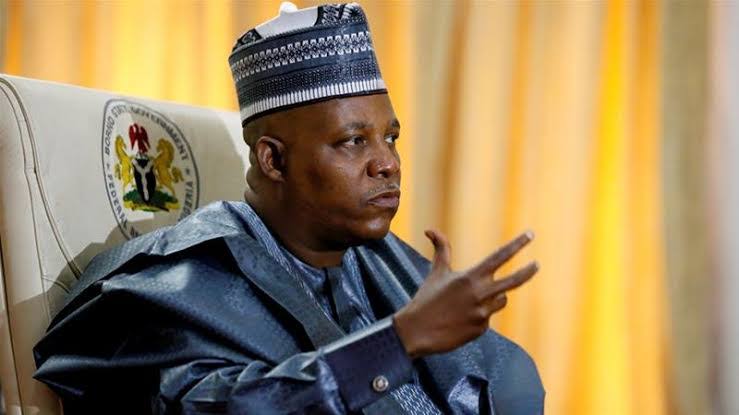My attempts to play piano again as an adult fell flat. So I looked to my kids for inspiration
Canada·First Person
For 10 years, Lindsay Zier-Vogel’s annual resolve to play the piano would fall flat. It wasn’t until she saw how hard her kids worked at learning new skills that she realized that she wasn’t committed to putting in the work.
· for CBC First Person
·

I was sitting at the upright mahogany piano that I'd first played when I was seven. I began with the simplest scale — C major, all white notes, the easiest fingering. Even though it'd been years since I'd taken a lesson, my fingers knew what to do, up and down the keys, music filling my small apartment.
My New Year's resolution was to start playing piano again. I had played as a kid, even squeaking through my Grade 8 Royal Conservatory exam in 1998. But after graduating from high school, my apartments weren't big enough for a piano, and my life was too busy with dance, writing and friends. Several years later, my mom called and said she didn't have room for my childhood piano anymore and asked if I wanted it. I couldn't say no.
I opened my battered copy of Chopin Waltzes and found the last piece I'd ever played. I rounded my fingers over the keys and played the first few bars of Waltz in C-sharp minor. It sounded incredible, and I was thrilled.
The muscle memory wore out quickly though. I couldn't find my place in the music, and even when I could, the four sharps were too tricky to translate from the page onto the keys. There were comments in the margin from my years-ago teacher that I no longer understood, and notes circled in pencil for reasons I couldn't remember. Pulse on one! I had written on the second page, though I couldn't get that far now. I played the first few bars over and over, and a few days later, I gave up.
I did this every January for a decade since 2012.
Things finally changed when my youngest kid started taking piano lessons in 2023. I was delighted to point out the treble clef and the bass clef, and show him which keys were which. It was wonderful to hear the sound of the piano filling the house, even if it was just Oh! Susanna on loop.
As I was sitting on a hard pew at his first piano recital, I realized that I wanted to play again — not just the first few bars of that Chopin waltz but for real. And I knew that if I was actually going to play, I would need lessons. Before I could talk myself out of it, I emailed my kid's teacher.
Faria taught students at every age and skill level, and from sitting in on my kid's lessons, I knew that she was patient and kind and not a drill sergeant about theory. On a snowy afternoon in January 2024, I shut down my computer early and walked over for my first lesson.
I sat at the grand piano in Faria's living room, trying desperately to remember everything I learned as a child about notes, fingering and time signatures. We started slow — the simplest of scales, a slow, repetitive Tchaikovsky piece. My 45-minute lesson was over before I knew it.
It was invigorating — the rush of being able to figure out a note on a page, discovering that my muscles still remembered the rolling chords of arpeggios. I practiced diligently every evening and slowly made it through my first piece. After 26 years, I was back to playing piano.

Except the scales got more challenging, and the pieces got harder and longer, and work was busy and my kids needed me, and a few months in, playing piano had lost its shine.
After a particularly busy week, I showed up at Faria's knowing I wasn't prepared. I wanted to justify my lack of practising — my kid was potentially moving schools, I was stressed out about the baseball team I was coaching, my kids had been late for school every day for the last two weeks, and my book edits were due and not even close to done. Faria asked me to play A-flat major scale, but I couldn't even remember what finger it started on.
My scales were terrible and the lesson got worse from there — my arpeggios were a mess, my rendition of Sarabande was a disaster and I bungled my way through Chopin's Waltz in A Minor. I felt the sting of tears, and even though Faria assured me that it was fine, I walked home in a shroud of shame. This entire venture was a waste of time.
That weekend, I sat at a swimming pool and watched my oldest kid learning how to dive. He belly flopped over and over again until finally figured it out, and dove into the deep end. As his beaming face surfaced, I realized my kids are constantly learning new things — diving, back crawl, pitching baseballs, long division. Everything they do is brand new, and they spend most of their time failing.
It seems like magic that one day their belly flops turn into dives, and they swim lengths on their backs, and throw strikes, and divide nine into 144, but it's not magic. It's practice. They practice all the time. And I realized that I'd stopped the practice of practising.
I'd organized my adult life around doing things I'm good at, and stopped doing things that were new. If I was going to play piano, I was going to have to get comfortable with being terrible at it. And I was going to have to trust that the only way to get better was through practising.

I've been playing for a year and a half now, and it isn't easy, and I never have enough time, but I've started giving myself stickers every day I sit down at the piano and play. I practice not just to be able to play a sonatina for Faria on a Friday afternoon, but because it feels good to transform something that's impenetrable at first glance into something I understand.
An added bonus is that my kids get to see (and hear!) me fail, and they also get to see (and hear!) me eventually succeed.
And there's no end game here. I'm not working towards a recital or an exam. I'm not turning this into a side hustle I can monetize.
Playing piano as a hobby in middle age has reminded me that it is the practising that matters — small, cumulative windows of effort — exactly what my kids do every single day.
Lindsay Zier-Vogel is a Toronto-based author, grant writer and the creator of the internationally acclaimed Love Lettering Project. Letters to Amelia is her debut novel, and she’s written Dear Street, a picture book that asks readers what they love about where they live; and her second novel, The Fun Times Brigade explores the life of a children’s musician.












